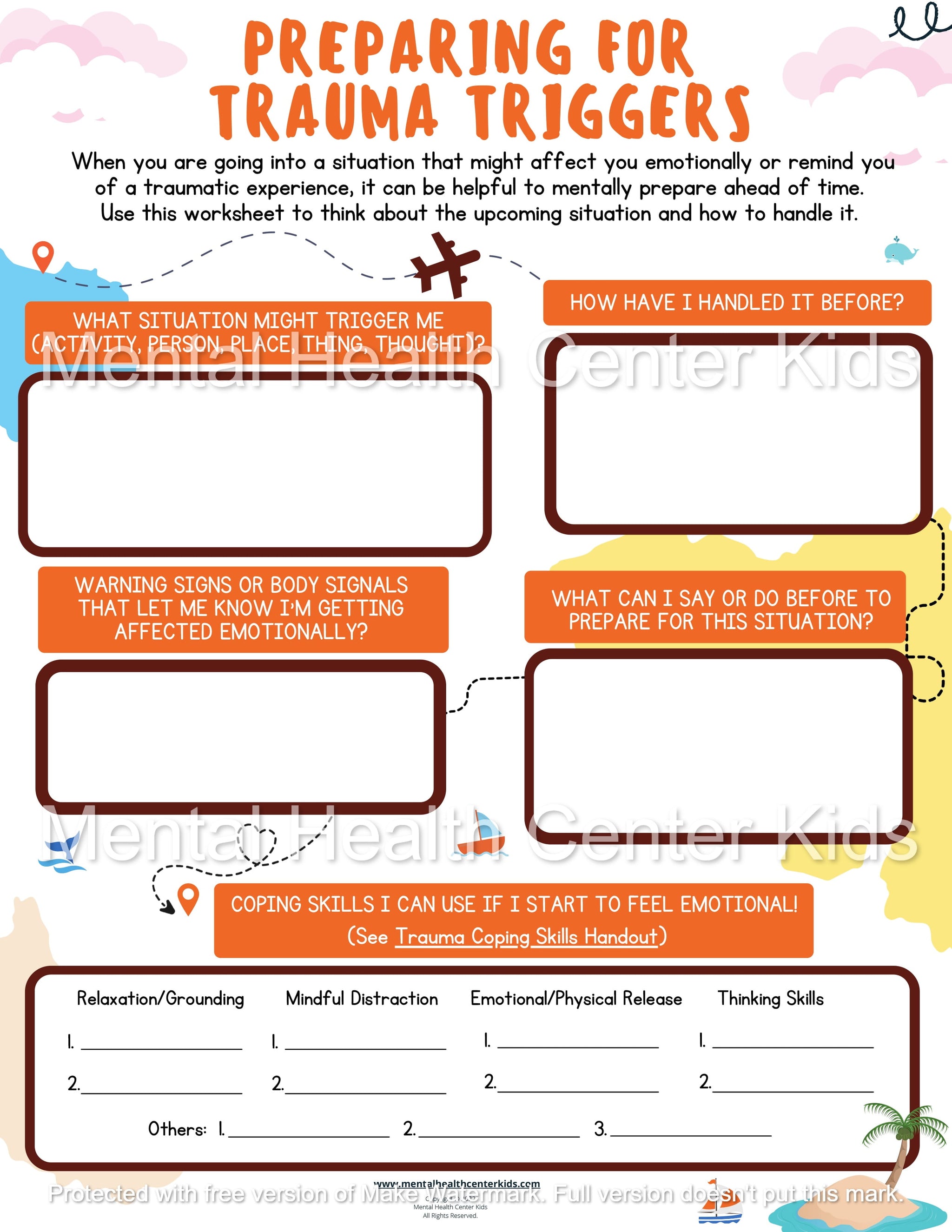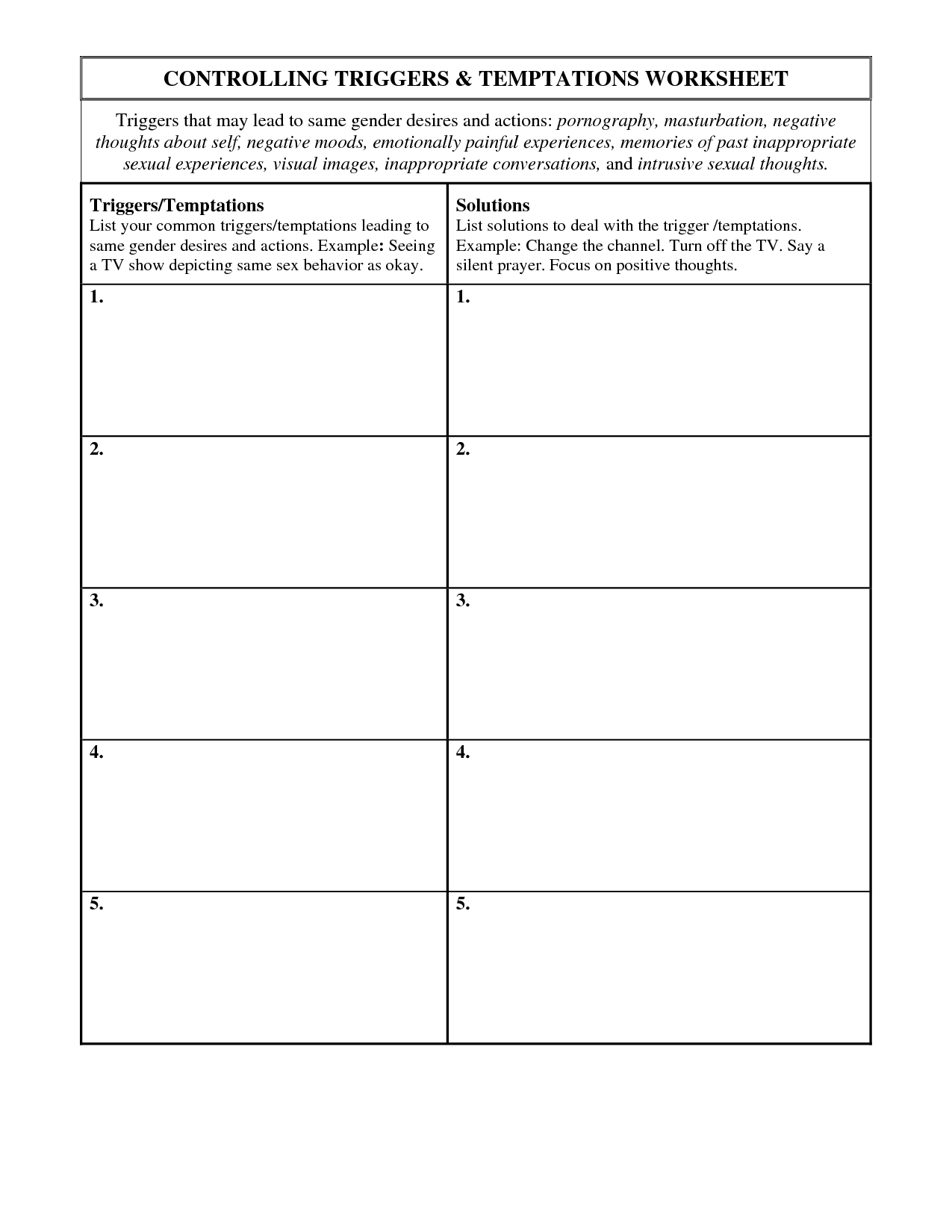Have you ever experienced a sudden surge of emotions or physical sensations in response to a specific trigger? Triggers are cues that remind us of traumatic experiences, leaving us feeling overwhelmed, anxious, or even panicked. If you’re struggling with the impact of trauma, understanding your triggers and glimmers can be a crucial step towards recovery.

Pinpoint the Pain: Recognizing Triggers
Traumatic experiences leave behind imprints in our minds and bodies, creating pathways that can be easily activated. Triggers are anything that activates these pathways, whether internal or external. They can be sights, sounds, smells, tastes, touch, or even thoughts that remind us of the trauma. When triggered, we may experience flashbacks, panic attacks, or intense emotional distress.

Empowering Survivors: The Role of Triggers and Glimmers Map
Triggers and Glimmers Map for Trauma Recovery is a tool that helps individuals identify their triggers and glimmers. Glimmers are positive experiences, thoughts, or memories that provide a sense of safety and comfort in the face of triggers. By creating a map of our triggers and glimmers, we gain a deeper understanding of our trauma response and develop strategies for coping with challenges.

Mapping Your Triggers and Glimmers
To create your Triggers and Glimmers Map, start by writing down all the potential triggers you can think of. These may include specific people, places, objects, or situations. Next, identify the glimmers that provide you with a sense of calm and safety. These could be memories of loved ones, hobbies you enjoy, or activities that make you feel good. By mapping out these elements, you can begin to identify patterns and develop strategies for navigating triggers effectively.

Triggers and Glimmers: Unlocking the Hidden Power
Triggers and glimmers play a vital role in trauma recovery. They serve as windows into our past experiences, allowing us to process and heal old wounds. By working with our triggers, we can learn to tolerate discomfort, develop resilience, and find ways to manage our trauma response.
Triggers and Glimmers Map: A Deeper Understanding
A Triggers and Glimmers Map is a dynamic tool that evolves as we progress through recovery. As we learn more about our triggers and glimmers, we can refine our map and develop more effective coping mechanisms. It’s essential to remember that healing is a journey, and the Triggers and Glimmers Map is a valuable companion along the way.

The History and Myth of Triggers and Glimmers
The concept of triggers and glimmers has been recognized for centuries, with roots in ancient healing traditions. In some cultures, triggers were believed to hold the power to cause illness or misfortune. Today, we understand that triggers are a natural response to trauma, and while they can be challenging, they also hold the potential for growth and healing.

Unveiling the Hidden Secrets of Triggers and Glimmers
Triggers and glimmers are not always obvious. They can be subtle and hidden, lurking in our thoughts and behaviors. By paying attention to our reactions and exploring what triggers us, we can uncover the hidden patterns that guide our responses. Understanding these hidden secrets empowers us to break negative cycles and create a path towards recovery.

Recommendations for Using Triggers and Glimmers Map
The Triggers and Glimmers Map is a powerful tool, but it’s essential to approach it with care and sensitivity. Start by setting realistic goals and working at a pace that feels comfortable. Seek support from trusted friends, family members, or therapists who can provide guidance and validation. Remember that recovery is not linear, and there will be setbacks along the way. With perseverance and support, the Triggers and Glimmers Map can be a transformative tool in your journey towards healing.

Triggers and Glimmers Map: A Pathway to Resilience
Creating a Triggers and Glimmers Map is an empowering act. It involves taking ownership of our experiences and developing a deeper understanding of our own unique recovery journey. By using this map, we can build resilience, manage triggers effectively, and reclaim control over our lives.

Tips for Creating Your Triggers and Glimmers Map
Here are some tips to help you create your own Triggers and Glimmers Map:
Triggers and Glimmers Map: A Holistic Approach
The Triggers and Glimmers Map is a holistic tool that addresses both the mind and body. By recognizing our triggers, we can develop strategies for managing our thoughts and emotions. By identifying our glimmers, we can access resources that provide us with a sense of safety and well-being.
Fun Facts About Triggers and Glimmers Map
How to Use Triggers and Glimmers Map
To use your Triggers and Glimmers Map, start by reviewing it regularly. This will help you to become more aware of your triggers and glimmers. When you encounter a trigger, refer to your map for coping strategies. These strategies may include breathing exercises, grounding techniques, or seeking support from others. Use your glimmers to provide yourself with a sense of safety and comfort in the face of triggers.
What if Triggers and Glimmers Map Doesn’t Work?
If you find that the Triggers and Glimmers Map is not working for you, don’t give up. There are other approaches to trauma recovery that may be more effective. Talk to your therapist or healthcare provider about other options.
Listicle of Benefits of Triggers and Glimmers Map
Question and Answer about Triggers and Glimmers Map
1. What is the difference between a trigger and a glimmer?
A trigger is anything that activates a negative response associated with a traumatic experience, while a glimmer is a positive experience or memory that provides a sense of safety and comfort.
2. How can I use a Triggers and Glimmers Map?
You can use your Triggers and Glimmers Map to identify patterns, develop coping strategies, and gain a deeper understanding of your trauma response.
3. What if I find that the Triggers and Glimmers Map is too overwhelming?
Talk to your therapist or healthcare provider about other approaches to trauma recovery that may be more effective for you.
4. How long does it take to create a Triggers and Glimmers Map?
There is no set time frame for creating a Triggers and Glimmers Map. It is a dynamic tool that evolves as you progress through recovery.
Conclusion of Triggers And Glimmers Map For Trauma Recovery
The Triggers and Glimmers Map for Trauma Recovery is a valuable tool that can help individuals understand and manage their trauma response. By identifying our triggers and glimmers, we can develop strategies for coping with challenges, build resilience, and reclaim control over our lives. Remember that healing is a journey, and the Triggers and Glimmers Map is a companion along the way.
